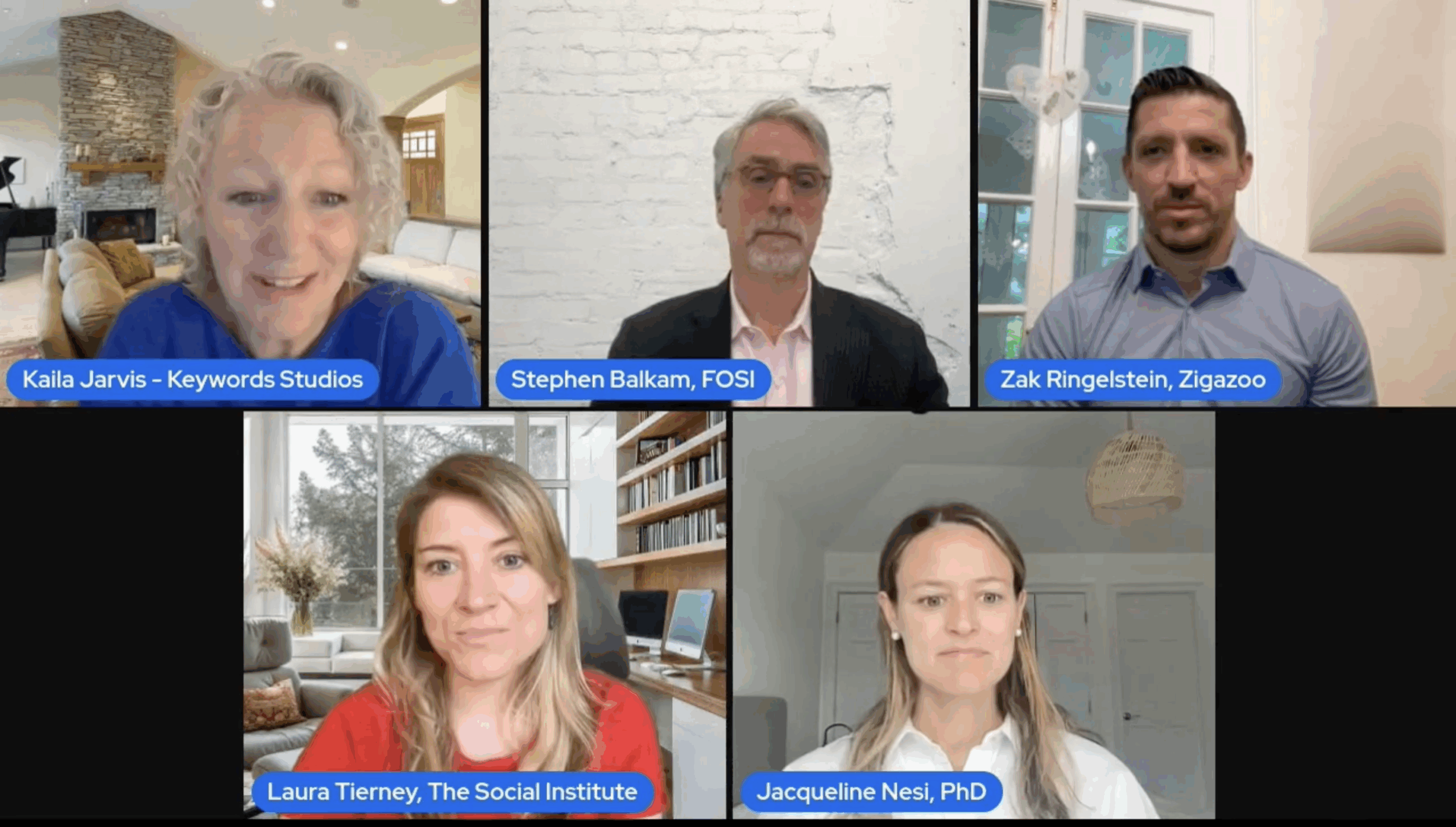Should Social Media Be Allowed or Banned for Kids?

By Leah Ringelstein, Director of Digital Wellness, Zigazoo
When it comes to parenting in the digital age, there’s one question that’s on nearly every parent’s mind: Should my kids be allowed to use social media—or should it be banned altogether?
That very question was at the heart of a recent roundtable hosted by Zigazoo, a safe and positive social media platform for kids. The discussion brought together a diverse panel of experts, including Stephen Balkam of FOSI, Zak Ringelstein, CEO of Zigazoo, Laura Tierney, CEO of The Social Institute, Dr. Jacqueline Nesi, clinical psychologist and professor at Brown University and cofounder of Tech Without Stress, and moderator Kayla Jarvis, Global Trust and Safety Advisor at Keywords Studios.
You can dig into the full conversation here.
The Big Question: Ban or Balance?
From the outset, the panel made it clear that this isn’t a simple “yes or no” issue. Social media can offer kids meaningful opportunities for connection, creativity, and community—but it also poses serious risks, including cyberbullying, exposure to inappropriate content, and addictive design. The panel proposed a new kind of social media built specifically for children—one that supports learning, includes strong guidance from parents and educators, and is grounded in ethical tech design. With the right balance, social media can prepare kids for the future without compromising the integrity of their childhood.
“The internet, social media and gen AI was not created with kids in mind. So what we’re doing is trying to retrofit many of our main platforms- or in the case of Zigazoo, Roblox and some others- there are folks coming along and saying “Oh no! we’re starting this from scratch… so that we have kids in mind all the way through.” We’re seeing more of that and that is incredibly encouraging.” Says Stephen Balkam CEO Family Online Safety Institute (FOSI)
What Parents Really Want
The panelists emphasized that most parents aren’t asking for a ban—they’re asking for better safeguards. That includes:
- Stronger parental controls and age verification
- More age-appropriate content moderation
- Clearer policies from platforms and accountability from tech companies
- Support with educating themselves, their kids and their communities towards healthier outcomes
The goal? To create a healthier online environment that allows young users to safely engage with the digital world.
Digital Literacy Is the Game-Changer
Instead of banning social media, several speakers advocated for teaching kids how to use it responsibly. Just like we teach them how to cross the street or manage their money, we need to equip them with the skills to navigate social media and provide them with safe developmentally-appropriate spaces to learn and practice these skills.
Suggestions included:
- Encouraging open conversations about what kids are seeing online and how it makes them feel
- Teaching kids how to spot misinformation and bad actors and how to respond
- Modeling healthy digital habits at home
- Scaffolding independence and starting kids in environments designed specifically for them
The Takeaway: Supervise, Don’t Silence
So—should social media be allowed or banned for kids?
The panel’s consensus leaned toward a balanced approach: let kids use social media, but with strong guidance, safe platforms, age-appropriate boundaries, and ongoing conversations.
As parents, our job isn’t to cut kids off from the digital world—it’s to help them thrive within it.
What are your thoughts? Have you set digital boundaries in your own home? Share your tips with us!
 Family Online Safety Institute
Family Online Safety Institute